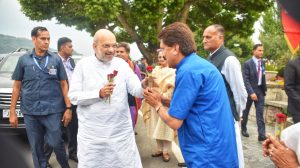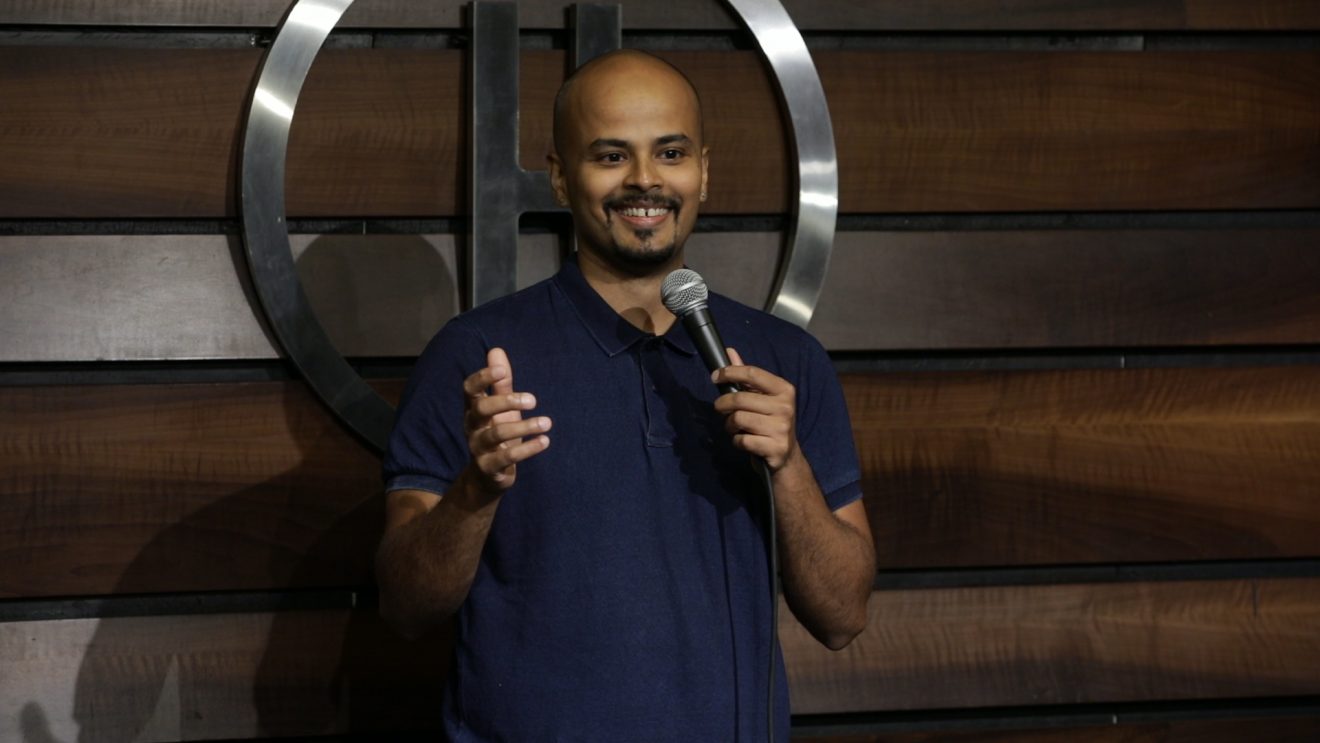The book “Vote for Pant: But, Don’t” by Sorabh Pant talks about politics and issues that matter.
In this book of toned-down thoughts and toothless opinions, he attempts to answer the important questions: Can motivational speakers solve unemployment? Is politics mainly about not paying tax? Should India give a haircut to Mallya? Can we use our population for direct profit? What is the correct price to buy news?
He also tries to answer these questions: Did ‘someone’ important plagiarize Sorabh’s stand-up set? Should the prime minister personally thank people for paying income tax? What makes China so cute? Is nepotism not really Bollywood’s problem? Should the punishment for fake news be more fake news? And, if Sorabh hosted Mann ki Baat, who would watch that?
Read an excerpt from the book below.
An entertainment supplement of a popular Indian newspaper mentions in certain articles that they are ‘advertorials’ and not news articles. I appreciate that—the honesty and acceptance that some things in the supplement is an advertisement and some journalists are copywriters working for an advertising agency that publishes daily.
I enjoy most of the entertainment supplements across newspapers. It’s a great way to analyse which celebrities are making money. If you can afford to be on the front page, you’re probably doing superbly. If like me, you can only afford to be on the eighth page under ‘Miscellaneous Entertainment’, you’re okay. Reading these supplements is a subtle way of reading a Forbes list of the rich in entertainment industry.
Everyone in the front page has a wealth manager. Or two. Unless the front page is about death or an issue like sexism or racism or theft—then we aren’t sure if they have a wealth manager, and it would be worth reading their will to figure that out.
Every newspaper in India does it—it’s not a big deal. We’re all bought by something or the other. Either by our ideals, our politics, our religion, our morality or simply by actual money. And money is the best way to buy more things.
What I enjoy about entertainment newspapers is the honesty. They’re telling you, ‘Hey, you want to be here? Either be really worthy of the news, say something controversial, have something controversial happen to you, give birth, die or just pay us. It’s all good. We don’t judge. This is an advertorial; this is the news.’ It explains why you will see stories in these newspapers carrying headlines like:
‘Sonakshi Sinha is afraid of lifts’
‘Varun Dhawan ate cake—Bollywood congratulates him’
‘Ajay Devgn changes his name to Ajay Likesguns’
‘Priyanka Chopra is a person’
‘Shahid Kapoor has a laptop’
‘Kanika Kapoor comments on Kanika Kapoor controversy’
It’s good. I appreciate it. I wish this kind of honesty was found across all newspapers and news media. While Bollywood may think it has money to buy advertorials, political parties and the governments have money to place ‘ads’ in news channels, or the media in general. It’s done in subtle and smart ways, but you know it’s happening. These ads could also be news stories—I’m not saying they are and I’m not saying they are not.
My mother had a theory about a particular newspaper (let’s not name it) which was this: ‘You can tell which party is going to win the election depending on how X newspaper reports them. You can also tell which politician is losing favour by how they report on them. I read X newspaper because it’s basically a daily exit poll for elections that may or may not happen.’ News channels in India are so abundantly upfront about their political leanings that the joy of watching them is gone. I would watch these channels to see through the bullshit and figure out which direction they leaned on, but now even that game is invalid.
Without naming channels, you can see it. Let’s say there are three trending stories in a day:
• ‘Electric autorickshaws in Delhi will now be coloured black and purple.’
• ‘Random actress says she will not delete TikTok app.’
• ‘Central government increases the price of petrol.’
News Channel 1: ‘Kejriwal has lost it. Delhi is losing faith in Kejriwal. Purple autorickshaws—how will people differentiate between the mode of transport and brinjal? Delhi barely has electricity—where will autos get electricity? Has Kejriwal ruined Delhi again? Is he a brinjal?’
News Channel 2: ‘We will now do a 12-hour debate on whether Random Actress should be officially designated a citizen of China, Pakistan, Hong Kong and also why these leftist liberal sickulars hate Modiji and will not stand with him.’
News Channel 3: ‘Great news for India. We will collect more tax money because of the increase in petrol price. Hopefully, this great initiative will help collect money to make autorickshaws in every state except Delhi run on electricity.’
News Channel 4: ‘Kejriwal helps reduce pollution in Delhi. Modiji has ruined us again. Now let’s see this video that proves that pandas are aliens from Mars…’ etc.
It’s pretty blatant and annoying because I can’t use my intelligence to guess who is bought. And this is not specific to India—every country in the world now has news channels that are peddling party propaganda in the guise of reporting news. And it’s convenient to say they are ‘bought’, as if there is a direct connection between the political party and the news channel—which there is not.
The connection is indirect. The news channel or outlet is a small company owned by some big company one of whose other bigger companies are owned/financed by another company that is owned by the cousin of the aunt of a mainstream politician, who happens to be from the party in power—either in state or in the Centre.
Probably diktats come in from the editorial board telling journalists, ‘Friends, if you’d like to continue getting your salaries, kindly avoid doing any stories disparaging Mr Mutual Fund and the party he comes from, okay? If you’d like to continue doing those stories, don’t worry, I’m sure you can start a news company online that is financed by radical college students and move to the suburbs of lower Noida.’ And everyone complies. Because for most of us truth is negotiable, comfort is not. I don’t blame anyone for complying. Everyone has their needs and responsibilities—just don’t scream at me about journalistic standards when you’re so obviously following none of them.

Excerpted with permission from Vote for Pant: But, Don’t, Sorabh Pant, Rupa Publications. Read more about the book here and buy it here.






















